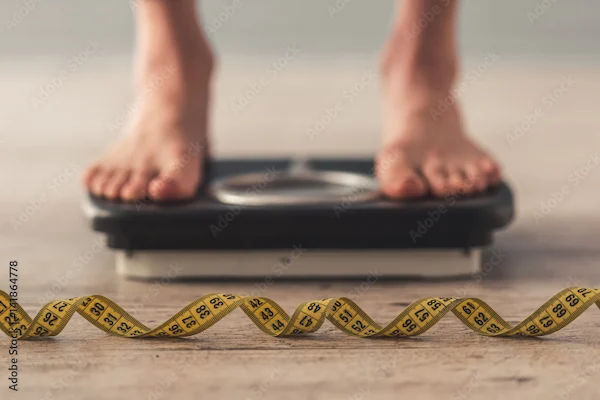The Sustainable Weight Loss Diet Plan: Your 2024 Guide
Know about the weight loss, best foods for weight loss, foods to avoid, 7 day weight loss plan and lifestyle factors for weight loss.

Written by Dr. Vasanthasree Nair
Reviewed by Dr. J T Hema Pratima MBBS, Fellowship in Diabetes Mellitus
Last updated on 13th Jan, 2026

Introduction
Are you tired of jumping from one fad diet to another, only to see the weight creep back on? You're not alone. The secret to lasting weight loss isn't found in a magic pill or a drastic crash diet; it's built on a foundation of sustainable, healthy eating habits. This comprehensive guide is designed to cut through the noise and provide you with a scientifically-backed, practical weight loss diet plan that you can maintain for the long haul. We'll move beyond restrictive rules and focus on nourishing your body, understanding the principles of a calorie deficit, and integrating key lifestyle changes that work synergistically with your diet. Get ready to learn how to build your plate, discover the best foods to eat, and create a plan that leads to effective and lasting weight loss.
Understanding the Foundation: It’s More Than Just Calories
While calories are a crucial piece of the puzzle, successful weight loss involves understanding how your body uses energy. A effective weight loss diet plan is built on the principle of a calorie deficit, but the quality of those calories matters immensely for your hunger, energy levels, and overall health.
The Calorie Deficit Principle: The Non-Negotiable Rule
Simply put, a calorie deficit means consuming fewer calories than your body burns. This forces your body to tap into stored fat for energy. You can create this deficit by eating less, moving more, or ideally, a combination of both. A safe and sustainable deficit is typically 500 calories per day, leading to about one pound (0.45 kg) of fat loss per week. Drastically cutting calories can backfire, slowing your metabolism and leading to muscle loss, which is why a moderate approach is key.
Consult Dietician for Personalised Advice
The Role of Metabolism in Your Weight Loss Journey
Metabolism is the process by which your body converts what you eat and drink into energy. Several factors affect your metabolic rate, including age, genetics, muscle mass, and physical activity. A unique insight often missed is that what you eat can slightly influence your metabolism. For instance, protein has a higher Thermic Effect of Food (TEF) than carbs or fats, meaning your body burns more calories digesting it. Similarly, strength training builds muscle, and muscle tissue burns more calories at rest than fat tissue, effectively giving your metabolism a long-term boost.
Building Your Plate: The Best Foods for Effective Weight Loss
Filling your diet with nutrient-dense, whole foods is the cornerstone of feeling full, energized, and reaching your goals. Think of your plate as a canvas: aim for color, variety, and balance.
Power Up with Protein: The Satiety Superstar
Protein is the MVP of any weight loss diet plan. It promotes satiety (the feeling of fullness), reduces cravings, and helps preserve lean muscle mass during weight loss. Include a source of lean protein in every meal.
Examples: Chicken breast, fish, eggs, lentils, chickpeas, Greek yogurt, paneer, and tofu.
Data Point: A study published in the American Journal of Clinical Nutrition found that increasing protein intake from 15% to 30% of calories led to a sustained reduction in calorie intake and weight loss.
Embrace Fiber-Rich Foods: For Fullness and Gut Health
Fiber, especially soluble fiber, absorbs water and forms a gel in your gut, slowing digestion and keeping you full for longer. It also supports a healthy gut microbiome, which is increasingly linked to metabolism.
Examples: Vegetables (broccoli, leafy greens), fruits (apples, berries), whole grains (oats, quinoa), and legumes (beans, lentils).
Tip: Aim for at least 25-30 grams of fiber per day from whole food sources, not supplements.
Choosing the Right Carbohydrates and Fats
Don't fear carbs and fats—choose them wisely. Opt for complex carbohydrates (whole grains, vegetables) over refined ones (white bread, sugar) for steady energy. Include healthy fats like avocados, nuts, seeds, and olive oil, which are essential for hormone function and vitamin absorption. They also add flavor and promote satiety.
Foods to Limit or Avoid for Optimal Results
To create space for nutrient-dense foods, it's helpful to reduce:
Sugar-Sweetened Beverages: Sodas, juices, and fancy coffaches are liquid calories with little nutritional value.
Refined Carbohydrates: White bread, pasta, pastries, and biscuits can spike blood sugar and lead to increased hunger.
Highly Processed Foods: Chips, cookies, frozen meals, and processed meats are often high in unhealthy fats, sodium, and empty calories while being low in fiber and protein.
Designing Your 7-Day Weight Loss Diet Plan (With Sample)
Here’s a flexible sample to inspire your easy meal plan for weight loss. Adjust portions based on your needs.
Day 1-7 Sample Meal Plan
Breakfast: Option A: 2 egg omelette with spinach and mushrooms. Option B: 1 bowl of oatmeal with berries and a spoon of peanut butter.
Lunch: Option A: Grilled chicken/fish with a large quinoa salad and mixed vegetables. Option B: A large bowl of chickpea and vegetable curry with one whole-wheat roti.
Dinner: Option A: Baked tofu or paneer with stir-fried broccoli and bell peppers. Option B: Lentil soup (dal) with a side of roasted vegetables.
Snacks: Greek yogurt, a handful of nuts, an apple, a protein shake, or carrot sticks with hummus.
Tips for Meal Prepping and Portion Control
Meal Prep: Dedicate 1-2 hours on the weekend to wash, chop, and cook staples like grains, proteins, and roasted veggies.
Portion Control: Use smaller plates, measure servings of oils and nuts (they are calorie-dense), and listen to your body's hunger cues. A rough guide: palm-sized protein, fist-sized carbs, and two handfuls of vegetables.
Beyond the Plate: Essential Lifestyle Factors for Success
Your diet doesn't work in a vacuum. These factors are non-negotiable for sustainable results.
The Critical Link Between Hydration and Weight Loss
Often mistaken for hunger, thirst can lead to unnecessary snacking. Drinking water before meals can also promote fullness, leading to naturally reduced calorie intake. Aim for 2-3 liters of water daily.
Why Sleep is Your Secret Weapon for Fat Loss
Poor sleep disrupts the hormones that regulate appetite ghrelin (hunger hormone) increases, and leptin (satiety hormone) decreases. This double whammy leads to increased cravings and hunger. Aim for 7-9 hours of quality sleep per night.
Managing Stress to Prevent Emotional Eating
Chronic stress elevates cortisol, a hormone that can increase appetite and drive abdominal fat storage. Finding healthy stress-management techniques like walking, meditation, or yoga is crucial for sticking to your diet plan.
The Role of Exercise: Complementing Your Diet Plan
Exercise is fantastic for health and accelerates weight loss, but you can't out-run a bad diet. Focus on consistency.
Cardio vs. Strength Training: What’s More Important?
Both are important, but for different reasons. Cardio (walking, running, cycling) burns calories during the activity. Strength training (weight lifting, bodyweight exercises) builds metabolically active muscle, which helps you burn more calories 24/7. A combination of both is the most effective strategy for changing your body composition.
Consult Dietician for Personalised Advice
Conclusion
Embarking on a weight loss journey is a commitment to your long-term health and well-being. This diet plan isn't about deprivation but about empowerment learning how to fuel your body with delicious, nutritious foods that support your goals. Remember, progress is not always linear. There will be ups and downs, and that's perfectly normal. Be patient with yourself, celebrate non-scale victories like increased energy and better sleep, and stay consistent. If you have underlying health conditions like thyroid issues or diabetes, or if your weight loss stalls significantly despite your best efforts, it's wise to seek professional guidance. You can consult a nutritionist or doctor online with Apollo24|7 to create a personalized plan tailored to your specific needs and health status. You have the power to make a change start today.
Consult Dietician for Personalised Advice

Ms. Sushma Jaiswal
Dietician
42 Years • M.Sc.(Food & Nutrition)
Bengaluru
Swasthya Nutrition, Bengaluru

Ms. Neelanjana J
Dietician
5 Years • Bsc., Msc. Nutrition and Dietetics specialised general weight management, PCOS/PCOD weight loss and Diabetes management. A clinical dietitian with 4+ year experience specializing in evidence-based, result-oriented nutrition therapy. I have extensive experience in weight loss, thyroid management, PCOD/PCOS, weight gain, and diabetes & prediabetes care. My approach is personalized, practical, and sustainable—focusing on helping individuals achieve long-term lifestyle change rather than quick fixes. I work closely with clients to understand their medical history, lifestyle, and goals, and then design customized diet plans that support hormonal balance, metabolic health, and overall wellbeing. My goal is to make nutrition simple, realistic, and effective—so you see measurable results and feel your healthiest self.Auther in Health benefits of jackfruit (Artocarpus heterophyllus Lam.) seeds: A review (2023) The Pharma Innovation Journal Co- Auther in Malnutrition in Women: A review (2023) The Pharma Innovation Journal. Highfield Level 3 in HACCP. Highfield Level 4 International Award in Food Safety Managment
Bengaluru
Apollo Clinic, JP nagar, Bengaluru

Ms. Priyanka Saini
Dietician
9 Years • Msc (Food & Nutrition),NDEP
Ghaziabad
Dr. PRIYANKA SAINI'S CLINIC, Ghaziabad

Dr. Eti Jain
Dietician
11 Years • MSc in Nutrition
Gurugram
Diets by Dietitian Eti, Gurugram

Ms Manisha Patil
Dietician
25 Years • B.A.S.M., M Sc Food & Science and Nutrition , ADND. CCHA . PGDHM
Pune
Apollo Clinic, Nigdi, Pune


